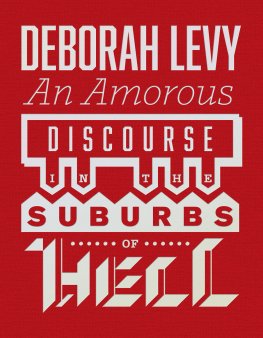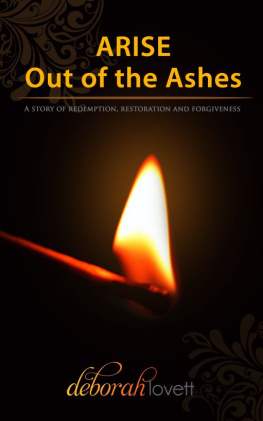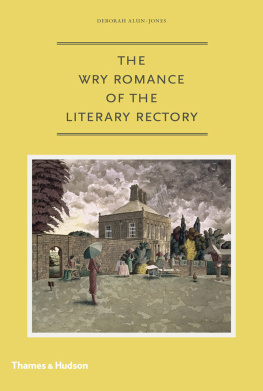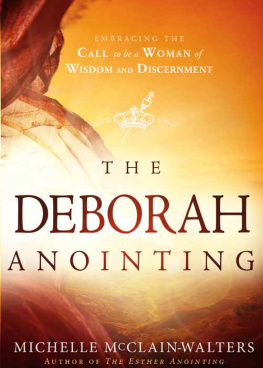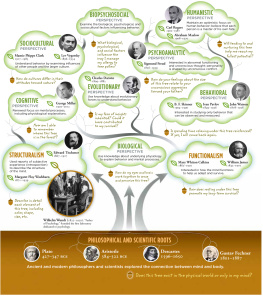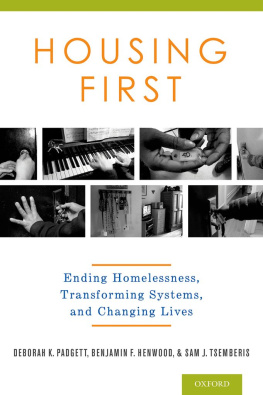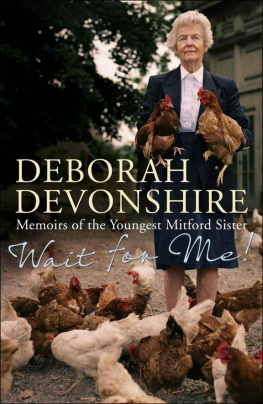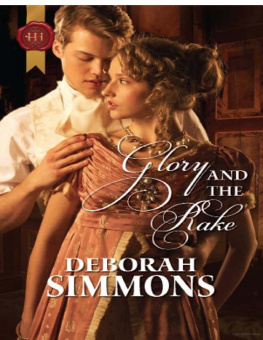Deborah Houlding - The Houses
Here you can read online Deborah Houlding - The Houses full text of the book (entire story) in english for free. Download pdf and epub, get meaning, cover and reviews about this ebook. year: 2017, publisher: The Wessex Astrologer Ltd, genre: Science. Description of the work, (preface) as well as reviews are available. Best literature library LitArk.com created for fans of good reading and offers a wide selection of genres:
Romance novel
Science fiction
Adventure
Detective
Science
History
Home and family
Prose
Art
Politics
Computer
Non-fiction
Religion
Business
Children
Humor
Choose a favorite category and find really read worthwhile books. Enjoy immersion in the world of imagination, feel the emotions of the characters or learn something new for yourself, make an fascinating discovery.

- Book:The Houses
- Author:
- Publisher:The Wessex Astrologer Ltd
- Genre:
- Year:2017
- Rating:4 / 5
- Favourites:Add to favourites
- Your mark:
- 80
- 1
- 2
- 3
- 4
- 5
The Houses: summary, description and annotation
We offer to read an annotation, description, summary or preface (depends on what the author of the book "The Houses" wrote himself). If you haven't found the necessary information about the book — write in the comments, we will try to find it.
The Houses — read online for free the complete book (whole text) full work
Below is the text of the book, divided by pages. System saving the place of the last page read, allows you to conveniently read the book "The Houses" online for free, without having to search again every time where you left off. Put a bookmark, and you can go to the page where you finished reading at any time.
Font size:
Interval:
Bookmark:
TEMPLESof theSKY
by Deborah Houlding

Republished in the UK in 2006 by
The Wessex Astrologer Ltd
PO Box 2751
Bournemouth
BH5 2AZ
England
www.wessexastrologer.com
ISBN 190240520X
Deborah Houlding 2006
1st edition ISBN 1898503699 published in 1998 by Ascella Publications
A copy of this book is available in the British Library
All rights reserved. No part of this work may be used or reproduced in any manner without written permission. A reviewer may quote brief passages.
Demonstrate the old houses to me, explain their number; prove that there can be neither fewer nor more show me undoubted and striking examples of their influence
Johannes Kepler, letter to correspondent
Quoted in Keplers Astrology: Excerpts, selected, translated and edited by Ken Negus (Eucopia Publications, Princeton, NJ, 1987).

A common form for a figure of the heavens at a nativity
Demonstration of the houses in a traditional square chart; reproduced from The Book of Instruction in the Elements of the Art of Astrology, by Al Biruni, 1029; translated by R. Ramsay Wright (Luzac & Co, London, 1934).
by Robert Hand
BY ROBERT HAND
Houses are one of the most problematical components of modern astrology, being at the same time among the most fundamental and controversial components. Everyone who has any knowledge of modern astrology knows that debate has long raged as to what is the proper method for computing the cusps of houses. We have a wondrous diversity of methods, Koch, Campanus, Placidus, Regiomontanus (also known as the Rational system), Equal House, Meridian, Morinus, and many, many more. The precise location of cusps is so terribly important because so many techniques depend upon knowing exactly where a cusp is. Yet modern astrology seems no closer than ever to solving the problem of what is the correct method of house division. This I think we all know.
What is not so clear is that the problem with houses is not limited to how they are derived astronomically and mathematically. We have an increasing problem with the significations of the houses as well. Especially in the last few decades there has begun a serious drift in the meanings of the houses. We are coming to disagree not only on the proper method of determining house cusps but also on what the houses signify. In this book Deborah Houlding deals mainly with this second problem, the drift of the symbolism.
It is not difficult to understand how this situation has come about. I, myself, did not use houses at all in my early work because their interpretation and the arrangement of their symbolism seemed whimsical and arbitrary. Yet even the significations of the houses as they have come to us from 19th century astrology do suggest underlying patterns. I dealt with a number of these in my own book, Horoscope Symbols. For example, broadly speaking, the houses above the horizon are more social and collective, while those below the horizon are more personal and individual; houses opposite each other seem to be two aspects of a single category of life; houses on the left (rising) side of the chart seem to be more related to an individuals action while houses on the right (setting) side seem to be more related to an individuals experience; and so forth.
However, none of these patterns hold for every house in every part of the chart. Every effort to rationalize the meanings of the houses and create some kind of coherent theoretical foundation fails because of one or more houses that do not fit a particular scheme.
Therefore, the great temptation is to adjust the meanings of the houses so that those houses which do not fit can be made to fit. I proposed several such adjustments myself in Horoscope Symbols (suggestions which I am a bit more reluctant to make now). And it may ultimately turn out that we do have to make such adjustments. But this should only be after we have thoroughly understood the evolution of the significations of the houses throughout history.
But while I have had access to many of the older books in the original languages and in translation, I realize that most students of astrology have not had this access. What is needed is a discussion of the issues of house interpretation along with a good summary of the evolution of their significations through time. This has not been available up until now. This book fills that need. Here we have an excellent critique of the tendencies of moderns to improvise upon and alter the tradition without paying enough heed to what the tradition actually says; and the bulk of the book deals with the history of the significations of each of the pairs of houses with the variant significations laid out for all to see. It may ultimately be true that modern astrology has to go its own way in sorting out the houses. But let us at least do so, if we must, knowing that we have exhausted the possibilities of the old traditions. With this book I believe that there is no excuse for ignoring the history of the tradition. I would hope that even those astrologers who have no special interest in traditional astrology, ie, the astrology of the time before 1700, who might want to attack the problem of the houses, will not do so until they have consulted this book or done equivalent research on their own.
WHEELS & SIGNS: THEORIES ON HOUSE MEANINGS
In any geniture every sign is affected by the skys division into temples; position governs the stars, and endows them with the power to benefit or harm.
Manilius, (c. 10 AD) Astronomica, II v.856
Since classical times houses have been one of the four essential components of astrology. Along with planets, signs and aspects, their 12-fold division of the celestial sphere forms a fundamental building block in astrological interpretation. Yet curiously, despite all the books that speak of the essential message of house meanings, very little exists in contemporary literature to foster a true appreciation of that essence by illustrating where the meanings come from. The origin of their symbolism is poorly understood, and little effort has been made by modern astrologers to investigate and define their meaning.
It appears a tradition has built up concerning the nature of the houses with little or no thought as to how they acquired their traditional meanings. How do we know what they mean? Most of us learn their interpretation early in our studies, remembering parrot-fashion a regime of house meanings that we commit to memory and integrate into practice. We learn that the 2nd house represents wealth and finances why? Pregnancy belongs to the 5th house why? Imprisonment to the 12th house, death to the 8th, travel to the 9th again, its important we ask the question, why?
Yet if such questions are put to astrologers the response generally ranges from a bemused no idea, to because thats what the signs mean, or perhaps its numerological?. Few of us have taken the trouble to explore the origin and development of the houses and fewer still have perceived this as an issue to be written about.
Most astrologers would agree that a refined astrological practice depends upon firm understanding of first principles. Where we have no clear idea of the basis of house meanings, we grapple to incorporate new rulerships. As a horary astrologer I am frequently consulted by students who dont know which house to draw signification from because their reasoning is confused, and also by experienced astrologers who struggle to decide upon the relevant houses for charts dealing with unusual situations. Knowledge of the core concepts eliminates this doubt, making it clear and obvious where any element of life, traditional or modern, fits into the house division scheme. Herein lies the key to successful astrology: a confident and unambiguous application of its symbolism.
Font size:
Interval:
Bookmark:
Similar books «The Houses»
Look at similar books to The Houses. We have selected literature similar in name and meaning in the hope of providing readers with more options to find new, interesting, not yet read works.
Discussion, reviews of the book The Houses and just readers' own opinions. Leave your comments, write what you think about the work, its meaning or the main characters. Specify what exactly you liked and what you didn't like, and why you think so.

